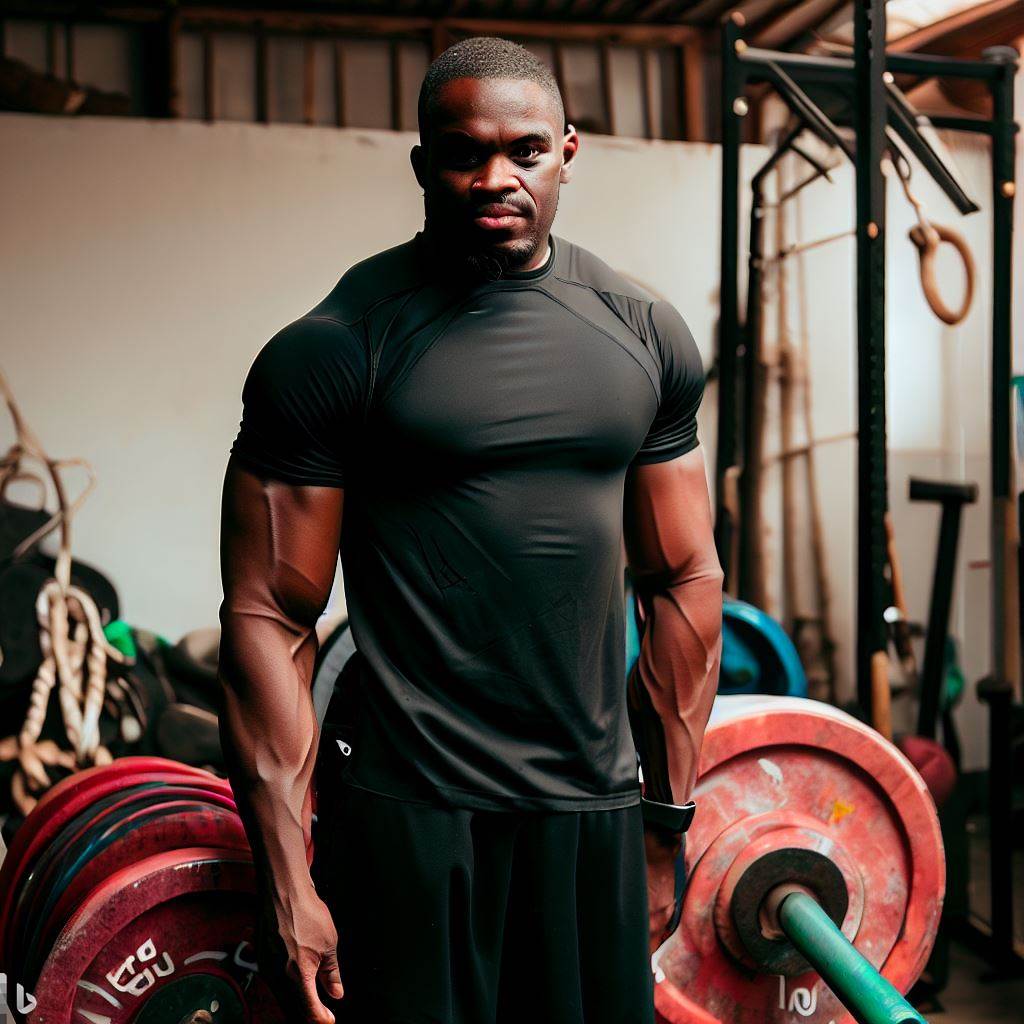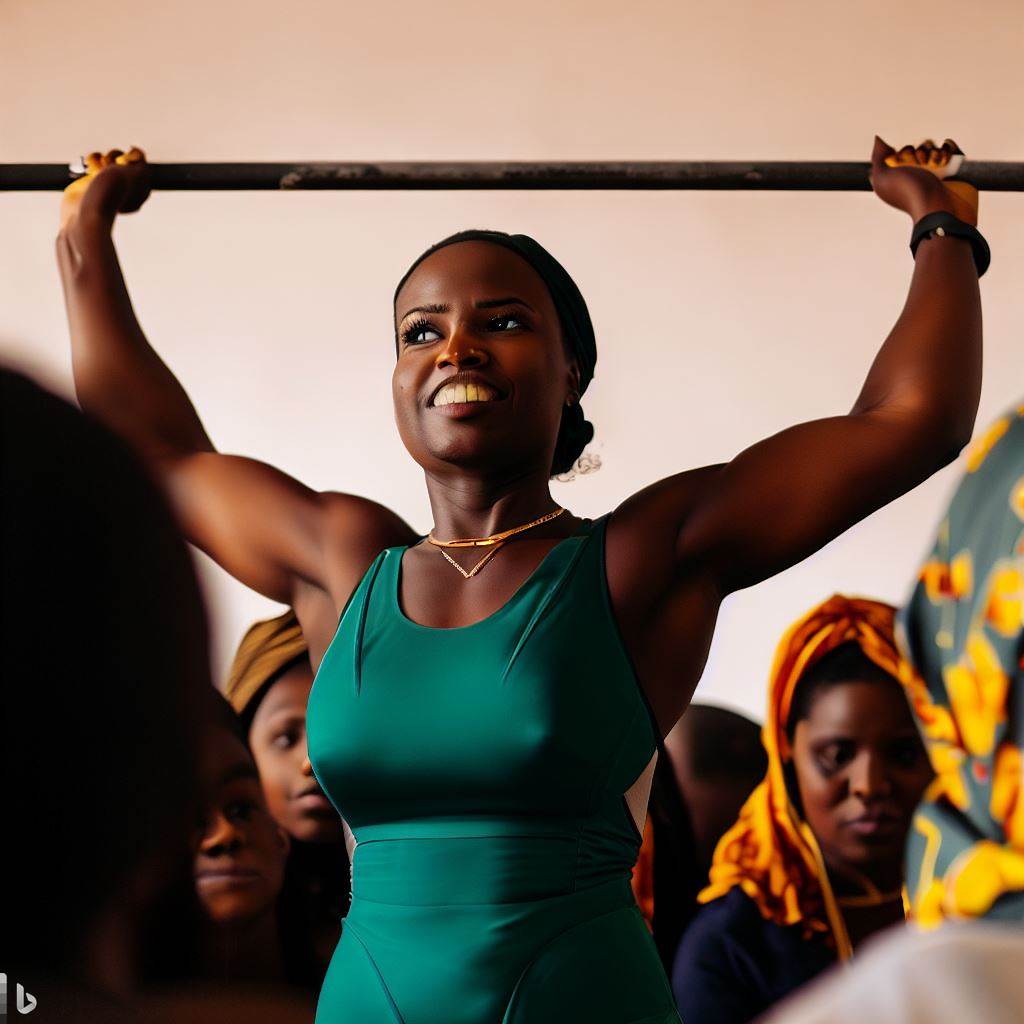Introduction
Let’s explore some of the tools used in Nigerian strength coach training.
A. Significance of Training Tools in Strength Coaching
- Training tools are the backbone of effective strength coaching, maximizing athletes’ performance and potential.
- They encompass a wide array of equipment and techniques tailored to individual needs.
B. Overview of Nigerian Strength Coaches
- Nigerian strength coaches are renowned for their exceptional skills and ability to produce world-class athletes.
- Their expertise extends to various sports, from track and field to soccer, showcasing Nigeria’s sporting prowess.
- This guide delves into the world of Nigerian strength coaching, exploring their tools, techniques, and success stories.
Read: Licensing & Certification for Sports Info Directors in Nigeria
Overview of Training Tools
A. Training tools and their role in optimizing athletic performance
Training tools are equipment or devices used to enhance and improve athletic performance.
They assist in developing specific skills, targeting muscle groups, and improving overall physical abilities.
B. The importance of utilizing appropriate training tools
Utilizing appropriate training tools is crucial as they help athletes train more efficiently and effectively.
The right tools can facilitate targeted training, maximize results, prevent injuries, and promote overall growth and development.
C. How training tools aid Nigerian strength coaches in achieving desired results.
- Variety and versatility: Training tools offer a wide range of options, allowing coaches to design varied and comprehensive training programs that address specific needs of athletes.
- Progressive overload: Many training tools provide adjustable resistance levels, enabling coaches to gradually increase the intensity of workouts and apply the principle of progressive overload.
- Specificity: Certain training tools allow coaches to target specific muscle groups or movement patterns, helping athletes improve their performance in specific sports or activities.
- Improved technique: Training tools can assist in developing proper technique and form, ensuring athletes execute movements correctly to maximize efficiency and minimize the risk of injury.
- Injury prevention: Utilizing appropriate training tools helps strengthen muscles, joints, and other supporting structures, reducing the likelihood of injuries during training and competition.
- Enhanced performance: By utilizing training tools, Nigerian strength coaches can enhance athletes’ performance by increasing strength, power, speed, agility, endurance, and overall athletic capacity.
- Mental stimulation: Training tools introduce variety and novelty into training sessions, keeping athletes engaged, motivated, and mentally stimulated, thus improving overall focus and performance.
- Efficiency and time management: Training tools allow coaches to optimize training time, enabling athletes to achieve desired results more efficiently and effectively.
- Individualization: Training tools can be tailored to individual athletes’ needs, accommodating different skill levels, strengths, weaknesses, and specific goals.
- Measurement and tracking: Many training tools provide quantitative data, allowing coaches to measure and track progress, set goals, and make informed adjustments to training programs.
Overall, training tools are integral to Nigerian strength coaches’ ability to optimize athletic performance and achieve desired results.
Their versatility, specificity, injury prevention benefits, and overall enhancement of performance make them valuable assets in the training process.
Read: Athletic Directors in Nigeria: Salaries and Benefits
Popular Training Tools Used by Nigerian Strength Coaches
A. Barbell and Weight Plates
- The versatility and effectiveness of barbell training make it a staple in Nigerian strength coaches’ programs.
- There are different types of weight plates, such as bumper plates and fractional plates, each with specific uses.
B. Resistance Bands
- Resistance band training offers a wide range of benefits, including increased muscle strength and flexibility.
- Various exercises, like banded squats and shoulder presses, effectively utilize resistance bands in workouts.
- Resistance bands provide an affordable and portable training option for Nigerian strength coaches and athletes.
C. Kettlebells
- Kettlebell training offers advantages such as improved core strength, flexibility, and cardiovascular endurance.
- Various kettlebell exercises, like swings and Turkish get-ups, target multiple muscle groups and improve functional movements.
- Nigerian strength coaches incorporate kettlebells into their training programs to enhance overall strength and athleticism.
D. Medicine Balls
- Medicine balls are versatile tools that add resistance and instability to strength training exercises.
- Exercises and drills using medicine balls, such as wall throws and Russian twists, improve power and stability.
- Nigerian strength coaches integrate medicine balls into their training regimens to enhance functional strength and explosive power.
Read: Top Nigerian Universities for Aspiring Athletic Directors

Specialized Training Tools Adapted by Nigerian Strength Coaches
A. Tire Flipping and Sledgehammers
Tire flipping is a powerful exercise that builds strength, especially in the lower body.
Sledgehammer training offers numerous benefits, including improved core stability and upper body strength.
Tire flipping is a popular training tool utilized by Nigerian strength coaches due to its many benefits.
This exercise, which involves flipping a heavy tire repeatedly, is a dynamic movement that targets multiple muscle groups.
It is particularly effective in developing lower body strength, as the action of flipping the tire requires a powerful leg drive.
One of the primary advantages of tire flipping is its ability to build functional strength.
Unlike traditional weightlifting exercises that isolate specific muscles, tire flipping engages the entire body in a coordinated effort.
This full-body activation leads to improved coordination, balance, and overall strength.
Additionally, the unpredictable nature of the tire’s movement challenges the stabilizer muscles, enhancing overall athleticism.
Not only does tire flipping improve strength, but it also promotes cardiovascular fitness.
The explosive nature of the exercise elevates heart rate, making it an effective conditioning tool.
Athletes who incorporate tire flipping into their training routines can experience better endurance and increased anaerobic capacity, ultimately enhancing their performance in various sports.
In addition to tire flipping, Nigerian strength coaches also utilize sledgehammer training as a specialized tool.
This type of training involves striking a tire with a heavy sledgehammer repeatedly. It is an excellent way to develop upper body strength and core stability.
The benefits of sledgehammer training are numerous. Firstly, it is a highly functional exercise that mimics movements often encountered in daily activities or sports.
The rotational and swinging motions engage the core and activate the shoulder and arm muscles.
This functional strength carries over into real-life situations, improving overall physical performance.
Furthermore, sledgehammer training is an excellent way to develop grip strength.
The act of gripping and swinging the sledgehammer requires significant grip force, which transfers to enhanced hand and forearm strength.
This strength is particularly beneficial for athletes in sports like wrestling, baseball, and rock climbing, where grip strength plays a crucial role.
B. Nigerian Indigenous Training Tools
- Nigerian strength coaches incorporate traditional tools like the Okpoko stick into their training programs.
- The Okpoko stick, a unique piece of equipment, is symbolically and culturally significant in Nigeria.
- Indigenous training tools represent a connection to Nigerian heritage and are incorporated to honor the country’s rich culture.
Nigerian strength coaches do not limit themselves to conventional training equipment but also incorporate indigenous tools into their programs.
One such tool is the Okpoko stick, a long wooden stick that holds symbolic and cultural significance in Nigeria.
The Okpoko stick is traditionally used by Nigerian warriors and symbolizes strength, bravery, and discipline.
This tool has been passed down through generations, and its presence in the training programs pays homage to the country’s rich cultural heritage.
Nigerian strength coaches understand the importance of staying connected to their roots and integrating traditional elements into their workouts.
Incorporating indigenous training tools like the Okpoko stick adds a unique aspect to training sessions.
It not only diversifies the exercise routine but also offers mental and emotional benefits.
Athletes training with these tools feel a sense of pride as they connect with their ancestral history, inspiring them to train with greater determination and focus.
Furthermore, utilizing Nigerian indigenous training tools enhances functional strength and improves muscular endurance.
The Okpoko stick, for example, requires players to perform various movements, such as overhead presses and rotational exercises.
These movements engage different muscle groups simultaneously, promoting muscle coordination and balance.
Generally, Nigerian strength coaches have embraced specialized training tools to enhance their athletes’ performance.
Tire flipping and sledgehammer training offer unique advantages in terms of functional strength and overall athleticism.
Additionally, incorporating indigenous tools like the Okpoko stick not only honors Nigerian culture but also provides mental and emotional benefits.
By adapting and utilizing these specialized training tools, Nigerian strength coaches have created a robust and culturally significant approach to strength and conditioning.
Read: Roles of an Assistant Coach in Nigerian Sports Teams
Conclusion
Training tools play a crucial role in the success of Nigerian strength coaches, helping them maximize their athletes’ potential.
The mentioned training tools, such as resistance bands, weights, and plyometric boxes, offer exceptional effectiveness and versatility in improving strength and performance.
It is highly encouraged for readers to explore and incorporate these training tools into their own training regimes, as they can significantly enhance their overall performance and achieve their fitness goals.




